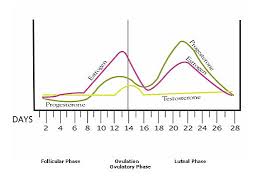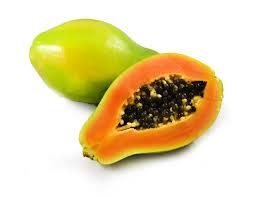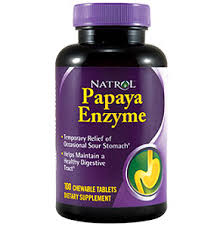The older we get, the more comfortable we seem to get with talking about our cycles. I think it’s because it’s something that we’re getting more and more used to as we grow over. We begin to realize what’s normal for us and what isn’t normal. And with period tracking apps, these days it’s even easier to know what’s normal month to month.
I had a friend tell me once that she used to always get a very sharp pain in her abdominal area when she was ovulating. At first, she wasn’t sure what this pain was, but as she started tracking her period, she began to realize that it was relatively normal for her. Recently, I’ve been noticing that I too experience more of my abdominal pain symptoms (usually caused by ETAP) while running during my ovulation time table. I can’t say for sure if those two things are related, but it did get me thinking about how many women probably actually experience this kind of pain. When is experiencing ovulation pain normal and when is it something you should be talking to you OBGYN about?
What is pain during ovulation?
 The technical pain for abdominal pain during ovulation is mittelschmerz, which is medically defined as lower abdominal pain on one side of the abdomen. This pain usually occurs about 14 days before your next menstrual period, right about the time when you are ovulating.
The technical pain for abdominal pain during ovulation is mittelschmerz, which is medically defined as lower abdominal pain on one side of the abdomen. This pain usually occurs about 14 days before your next menstrual period, right about the time when you are ovulating.
The pain is usually described as either a dull, cramp-like pain or a sudden, sharp pain at one side of the lower abdomen. This pain is usually, but not always accompanied by blood or discharge. The pain occurs on one side of the abdomen, as that is the side that is releasing the egg (Mayo Clinic, 2019).
What causes Mittelschmerz?
As we have established, Mittelschmerz occurs during ovulation, the phase in which the egg-containing follicle ruptures to release the egg. It’s thought that this pain may occur because as the follicle grows before rupturing, it may stretch the surface of the ovary causing pain. Similarly, blood or fluid that comes from the ruptured follicle can irritate the lining of the abdomen and cause pain. Although it is not 100% known what the for sure cause for this pain is, these theories are the most practical estimate that researchers currently have discovered (Mayo Clinic, 2019).
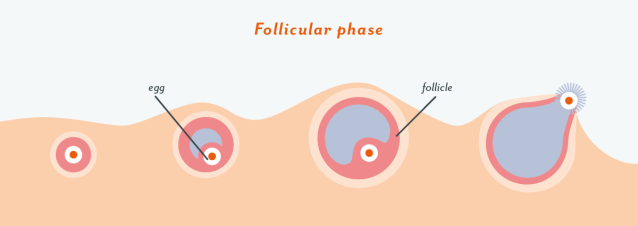
During the Follicular phase of the cycle, the follicle ruptures and releases the egg. This is when Mittelschmerz is said to occur. (Photo is retrieved from the period tracking app: Clue)
What can be done for Mittelschmerz Pain?
Usually, medical attention isn’t needed for this type of pain, similar to how medical attention isn’t usually needed for cramps. This is especially true if you have noticed that this is normal for your cycle. For the most part, an over the counter pain medication, such as ibuprofen, will help to relieve symptoms (Mayo Clinic, 2019).
What if it becomes too bad?
If the pain is too intense, an oral contraceptive can be prescribed to better control the menstrual cycle. However, before you jump into this sort of situation, I think it’s something you should highly talk about with your doctor to make sure you go on the right type of contraceptive with the right dosing for you. (In the future I want to make a post about some real-life stories of how people have reacted to contraceptives, but we’ll see if that ever happens).
When should you see your doctor?
A trip to your OBGYN might be needed when the pain is so intense that it is interfering with your normal, day to day activities, if pain is occurring outside your ovulation window, if your mid-cycle bleeding becomes heavy and mimics that of your period, or if you develop a fever or other symptoms along with pain (Nwadike, 2018).
All in all, pain around different parts of your cycle is all totally normal. Being a woman can be so much fun sometimes, especially if you are in pain twice a month all because of your cycle. However, as long as the pain is normal and manageable, it’s nothing you should be concerned about. Just keep tracking your period and recognizing what is normal for you so in case something out of the normal does happen, you’ll be right on top of it!
What other cycle topics do you want me to talk about coming up? Let me know in the comments below.
Until next time,
Kat
Sources and further reading:
Mayo Clinic (2019). Mittelschmerz. Retrieved from: https://www.mayoclinic.org/diseases-conditions/mittelschmerz/symptoms-causes/syc-20375122
Nwadike, V.R. (2018). What does ovulation pain mean? Medical News Today. Retrieved from: https://www.medicalnewstoday.com/articles/323572.php
 Until I came across another interesting drink at my local supermarket. It was an apple cider drink, but it was only around $3 a bottle and was made with distilled water and apple cider vinegar. And it came in different flavors like cinnamon, honey, and acacia. Now this I was willing to try.
Until I came across another interesting drink at my local supermarket. It was an apple cider drink, but it was only around $3 a bottle and was made with distilled water and apple cider vinegar. And it came in different flavors like cinnamon, honey, and acacia. Now this I was willing to try. There’s still not a ton of knowledge and research out there on the subject, but there are a ton of testimonials that suggest adding apple cider vinegar to you menstruation care can in fact decrease cramps and cramp intensity. So what’s going on here?
There’s still not a ton of knowledge and research out there on the subject, but there are a ton of testimonials that suggest adding apple cider vinegar to you menstruation care can in fact decrease cramps and cramp intensity. So what’s going on here? Apple cider vinegar is highly renowned with people looking for holistic remedies for different ailments. Apple cider vinegar contains proteins, antioxidants, and acetic acid all which work to help reduce harmful bacteria, reduce inflammation, regulate blood glucose levels (as seen above), and reduce bad cholesterol and triglyceride levels.
Apple cider vinegar is highly renowned with people looking for holistic remedies for different ailments. Apple cider vinegar contains proteins, antioxidants, and acetic acid all which work to help reduce harmful bacteria, reduce inflammation, regulate blood glucose levels (as seen above), and reduce bad cholesterol and triglyceride levels.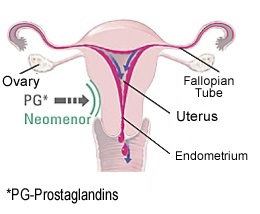 The color and consistency of your flow can tell you a lot about what’s going on with your cycle. Light pink, bright red, and thin blood means it’s fresh blood that isn’t spend a lot of time in your uterus and is flowing relatively quickly. Dark red or brown blood is blood that has spent more time in the uterus and is considered older. This type of blood is most common at the beginning of the cycle, when remnants of the past cycle are being expelled, or at the end of your bleeding cycle.
The color and consistency of your flow can tell you a lot about what’s going on with your cycle. Light pink, bright red, and thin blood means it’s fresh blood that isn’t spend a lot of time in your uterus and is flowing relatively quickly. Dark red or brown blood is blood that has spent more time in the uterus and is considered older. This type of blood is most common at the beginning of the cycle, when remnants of the past cycle are being expelled, or at the end of your bleeding cycle. If you have concerns or this is new to you, you may want to consider how you are collecting your blood and determine if there is a better way to evaluate the consistency of your flow. Whereas pads and tampons are the most common form or collection, they soak up most of the period blood and make it difficult to determine the consistency of blood flow. Menstrual cups, which collect the blood however, will make it easy to determine if blood flow is thick, thin, and the color of the blood.
If you have concerns or this is new to you, you may want to consider how you are collecting your blood and determine if there is a better way to evaluate the consistency of your flow. Whereas pads and tampons are the most common form or collection, they soak up most of the period blood and make it difficult to determine the consistency of blood flow. Menstrual cups, which collect the blood however, will make it easy to determine if blood flow is thick, thin, and the color of the blood.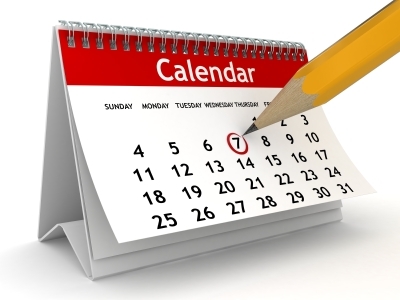 You’ve probably heard it from your doctor every time you’ve gone it for a checkup: “When was your last period?” And some of us have had to scour the backs of our minds trying to remember exactly what day our last period actually was, only to result in a lecture from the doc about how we should be tracking our period every, single month.
You’ve probably heard it from your doctor every time you’ve gone it for a checkup: “When was your last period?” And some of us have had to scour the backs of our minds trying to remember exactly what day our last period actually was, only to result in a lecture from the doc about how we should be tracking our period every, single month. You can almost always tell when it’s coming. Not only can you probably schedule it, but you can always feel the differences in your body. The bloating comes along with the pains and not to mention that sudden craving for carbs and sugar, especially chocolate. And then you’re stuck with that feeling for an entire week. You feel like you could eat a chocolate bar or two everyday when you’re on your period, but the question is why? Why do we feel this way when we’re menstruating? Is there some hormone telling us that we should be eating chocolate? Is there some scientific reasoning that says chocolate makes us feel less painful? What’s going on here?
You can almost always tell when it’s coming. Not only can you probably schedule it, but you can always feel the differences in your body. The bloating comes along with the pains and not to mention that sudden craving for carbs and sugar, especially chocolate. And then you’re stuck with that feeling for an entire week. You feel like you could eat a chocolate bar or two everyday when you’re on your period, but the question is why? Why do we feel this way when we’re menstruating? Is there some hormone telling us that we should be eating chocolate? Is there some scientific reasoning that says chocolate makes us feel less painful? What’s going on here?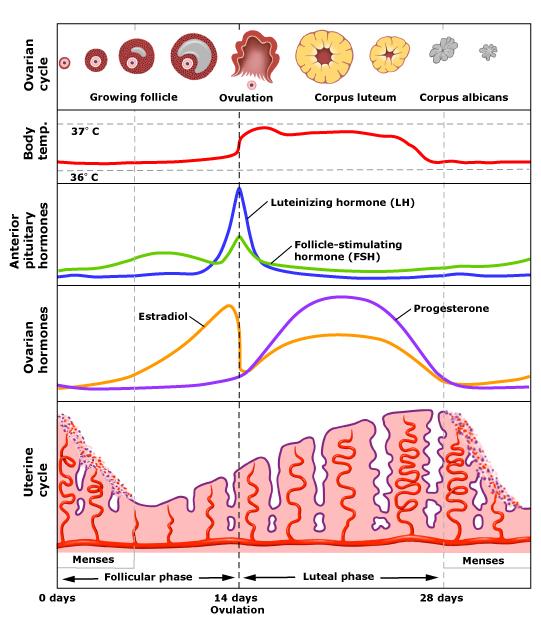 Stage 3 is the menstrual phase in which the dead tissue of the uterus causes the lining of the uterus to shed. This is when bleeding takes place for 4-7 days. During this time, estrogen and progesterone levels are still low.
Stage 3 is the menstrual phase in which the dead tissue of the uterus causes the lining of the uterus to shed. This is when bleeding takes place for 4-7 days. During this time, estrogen and progesterone levels are still low.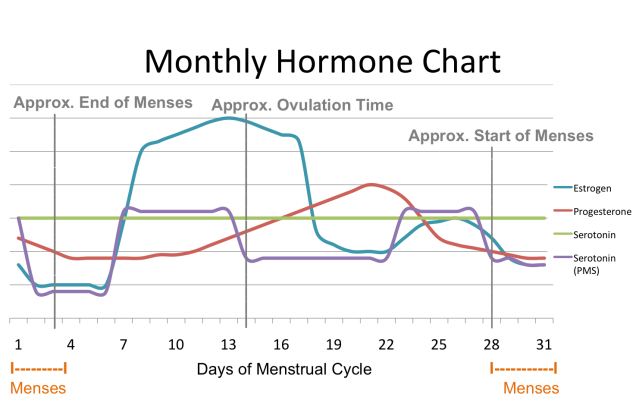
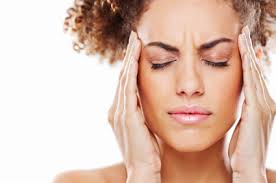 Recently, I’ve been experiencing more PMS symptoms than normal. I’ve been having a lot of headaches lately, especially before my period begins. Just the other week a family friend of mine, who has suffered from migraines the entire time I’ve known her, pointed out to me that pre menstrual cycles can actually be a trigger for migraines. I found this very interesting and knew that I just needed to do a little research to see what was going on with that!
Recently, I’ve been experiencing more PMS symptoms than normal. I’ve been having a lot of headaches lately, especially before my period begins. Just the other week a family friend of mine, who has suffered from migraines the entire time I’ve known her, pointed out to me that pre menstrual cycles can actually be a trigger for migraines. I found this very interesting and knew that I just needed to do a little research to see what was going on with that!
 This definitely sparked my attention. For years I’ve suffered from spotty and utterly painful periods. But for the past few months, my periods have lasted for three days and although flow has been heavy for those three days, I’ve also been mostly pain free for that time! This made me wonder if it was because of the diet changes I’ve experienced since my recent move, which honestly hasn’t been that different, or if it had to do with the introduction of a regular workout routine. I decided to do some research on the latter and I was highly interested in what I read about.
This definitely sparked my attention. For years I’ve suffered from spotty and utterly painful periods. But for the past few months, my periods have lasted for three days and although flow has been heavy for those three days, I’ve also been mostly pain free for that time! This made me wonder if it was because of the diet changes I’ve experienced since my recent move, which honestly hasn’t been that different, or if it had to do with the introduction of a regular workout routine. I decided to do some research on the latter and I was highly interested in what I read about.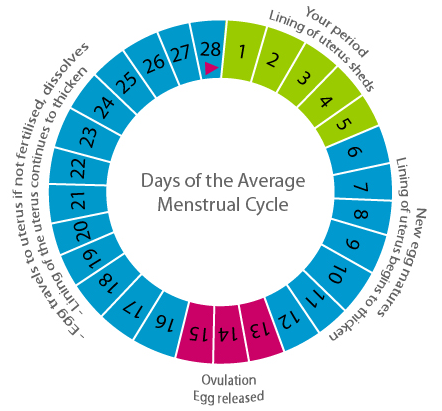
 It’s hard to drag ourselves to the gym when we’re feeling less than stellar, especially when that’s because we’re on our period. But by exercising during your period you can actually make yourself feel loads better. When exercising, you help your body lose excess water, reducing bloating. This also helps to trigger the release of endorphins increasing mood and decreasing the feeling of wanting to punch everyone in the face (you know you get that way during your period. We all do). And by working out during your period you are helping to loosen the muscles in the lower abdomen and back helping to relieve cramps!
It’s hard to drag ourselves to the gym when we’re feeling less than stellar, especially when that’s because we’re on our period. But by exercising during your period you can actually make yourself feel loads better. When exercising, you help your body lose excess water, reducing bloating. This also helps to trigger the release of endorphins increasing mood and decreasing the feeling of wanting to punch everyone in the face (you know you get that way during your period. We all do). And by working out during your period you are helping to loosen the muscles in the lower abdomen and back helping to relieve cramps!
